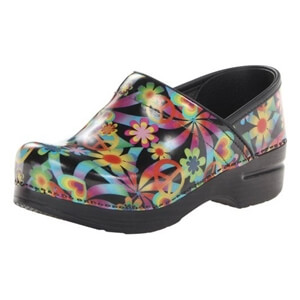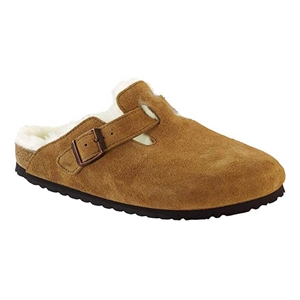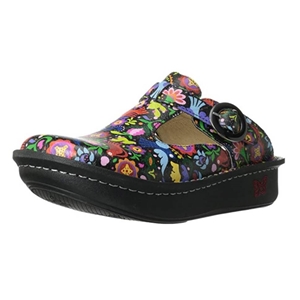The nursing field is continuously changing and especially in the world today, there is more of a demand than ever for nurses. There is a huge variety when it comes to the different types of nurses you can choose to be.

Deciding which type you want to specialize in can be an incredibly difficult decision and can take a lot of time and consideration. Maybe you want to specialize in something that you’re passionate about and that you don’t care as much about the money and/or benefits you’ll receive if you choose that path.
However, maybe you simply want to choose the path that you receive the best pay and benefits for in order to align with your desired lifestyle. In this article we’re going to share with you some tips on how to choose the right nursing specialty for you, as well as some of the many nursing specialties available to choose.
See also: Is It Worth It To Be A Nurse?
How Can I Choose?
There are many different quizzes and tests available on the internet that claim to help you find out which nursing specialization you should choose but you should take these with a grain of salt.
While these quizzes and tests may be a good tool to use in order to figure out different types of specialties, it’s essential for you to do more research for yourself outside of them. In order to help narrow things down, figure out your wants, needs, and overall goals as a nurse first. After this, ask yourself a few questions, such as:
Which skills and schooling are required?
Some nursing specialties may require a higher level of education than others. While some specialties will require a Master’s Degree and advanced clinical skills, others may only require you to have a Bachelor’s Degree.

It’s an important step in your decision making process as you have to be prepared for the amount of schooling you believe you will be able to do.
See also: Is Nursing Hard To Study?
Which location do I want to work in?
In nursing there is no shortage of variety in the different types of areas you can work in, depending on your specialty. Perhaps you have a passion for helping children and want to work directly in a school. On the contrary, you may want to work in the high pressure location of a hospital emergency room.
What is the patient population?
Nurses help everyone, regardless of age, gender, or other identity labels. However, each nursing specialty helps different people and it’s important you’re comfortable with that population. For example, if you aren’t the most comfortable around children, you should avoid specializing in pediatrics. Separately, you may have personal experience with family and friends dealing with cancer, and may have a passion for helping oncology patients.
What will the work hours be like?
Different nursing specialties require different working hours. Some may require an extreme amount of commitment, while others may have a relatively flexible schedule and enable you to have more time outside of work. Typically, specialties that require long hours will offer more opportunities for long-term career growth and development.
What will the responsibilities be?
Another difference between nursing specialties is the amount of responsibilities you’ll have on the job. Some specialties are more lax, and allow you to work with only a few patients at a time. However, some specialties will require you to be responsible for an entire unit of patients at a time. Figure out which kind of pressures you will be able to handle, and incorporate that into your decision making process.
What is the future of this specialization?
Some nursing specializations are growing in demand while others are shrinking. Picking a specialization that is low in demand may make it harder to find a job as there may be less opportunities for employment. If you opt for a specialization that is high in demand, there will be more job opportunities but there may be more competition as they are a more desirable career path.
Different Nursing Specializations

Registered Nurse (RN)
Registered nurses are one of the fastest growing specialties in nursing. Registered nurses work directly with all kinds of patients in order to provide and coordinate their care. A majority of an RN’s time is spent assessing and observing patients, as well as preparing them for exams and treatments, all while administering medications if needed.
Geriatric Nurse
Geriatric nurses specialize specifically in treating older patients and providing care to maintain their quality of life. Geriatric nurses may anticipate future care for degenerative diseases such as Alzheimer’s and Osteoarthritis. If you have a passion for helping elders this may be a good career option for you.
Family Nurse Practitioner (FNP)
Family nurse practitioners are trained in offering primary health care for all people. A majority of a FNP’s time will be spent diagnosing and treating different illnesses, as well as performing physicals on patients.
Mental Health Nurse
Mental health nurses are unfortunately on the lower end salary wise, however, the specialty has a 31% expected job growth in coming years, which may lead to a raise in order to meet the demand. A mental health nurse specializes in diagnosing and treating psychological disorders in their patients. If you’re passionate about mental health this may be a very rewarding career path for you.
Nurse Midwife
Nursing midwives specialize in the care of pregnant women. Nursing midwives will spend a majority of their time in prenatal appointments, as well as providing assistance in the labor and delivery process. Care continues after the birth of the baby in the form of education and counseling to the mother.
Pediatric Nurse
Pediatric nurses specialize in the care of those ranging from newborns to young adults. Nurses who choose this specialty will likely spend most of their time providing physicals, as well as diagnosing illnesses and coming up with plans for treatment.
Travel Nurse
Travel nurses move from location to location based on contracts and often receive housing stipends. If you love to travel this would be a great specialty for you to choose, and may help lead you to new experiences both personally and professionally.
Frequently Asked Questions
What factors should I consider when choosing a nursing specialty?
When choosing a nursing specialty, there are several factors to consider. Firstly, think about your interests and passions within the healthcare field. Reflect on the type of patient population or medical conditions you feel drawn to. Additionally, consider the working environment that suits you best. Some specialties involve fast-paced, high-stress settings like the emergency room, while others focus on long-term care or community health. Evaluate the educational requirements and certifications needed for each specialty, as some may require additional training or advanced degrees. It’s also important to think about the potential for career growth and job opportunities in your desired specialty. By taking these factors into account, you can make a well-informed decision about which nursing specialty is the right fit for you.
Can I switch nursing specialties later in my career?
Yes, it is possible to switch nursing specialties later in your career. Nursing offers a diverse range of specialties, and many nurses transition to different areas as their interests or goals evolve. Switching specialties may require additional education or training, depending on the new field you wish to pursue. It’s important to carefully evaluate your reasons for wanting to switch and assess the potential impact on your career trajectory. Seek advice from experienced nurses or career counselors who can guide you through the transition process. Remember, nursing is a versatile profession that allows for flexibility and growth, enabling you to explore new avenues throughout your career.
How can I determine if a nursing specialty is a good fit for me?
Determining if a nursing specialty is a good fit for you involves considering various factors. Start by assessing your skills, strengths, and areas of expertise. Reflect on your personality traits and how they align with the demands of the specialty, such as the need for critical thinking, teamwork, or autonomy. Consider the patient population you feel most passionate about working with and the type of care you are drawn to. Shadowing or speaking with nurses currently practicing in the specialty can provide valuable insights into the day-to-day responsibilities and challenges. Trust your instincts and listen to your intuition when evaluating if a nursing specialty feels like the right fit for you.
What resources are available to help me explore different nursing specialties?
There are several resources available to help you explore different nursing specialties. Start by utilizing online platforms, forums and websites that provide comprehensive information on various nursing specialties, their scope of practice, and required qualifications. Professional nursing organizations often offer resources and guidance specific to different specialties. Attending nursing conferences or seminars can provide opportunities to network with professionals from different fields and gain firsthand insights. Connecting with mentors or experienced nurses in the specialties you are interested in can offer valuable guidance and advice. Lastly, consider reaching out to nursing school career services or counselors who can provide resources and support in exploring different nursing specialties.
Remember, choosing the right nursing specialty is a personal decision that should align with your interests, skills, and goals. Take the time to explore different options, seek guidance from experienced professionals, and trust yourself to make an informed choice that will lead to a fulfilling and rewarding nursing career.
You may also like
Dansko Women’s Professional Clog Review
Dansko update about the current situation: “Dansko has resumed distribution center operations under challenging circumstances…
Birkenstock Boston Shearling Women’s Slip On Clogs Review
If you’re looking to look radiant when walking – but at the same time very…
Telehealth Nursing: Navigating the Future of Remote Patient Care
The Emergence of Telehealth Nursing Telehealth nursing has emerged as a transformative force in the…
Why Do Nurses Wear Crocs?
Whether you’re been a nurse for several years, or you’re studying to be a nurse,…
The Mental Health of Nurses: Coping with Stress and Building Resilience
The Stressors in Nursing Nursing, while immensely rewarding, comes with its share of stressors that…
Alegria Donna Women’s Clog Review
This type of Alegria Donna shoes has a good reputation. The female audience usually enjoys…






